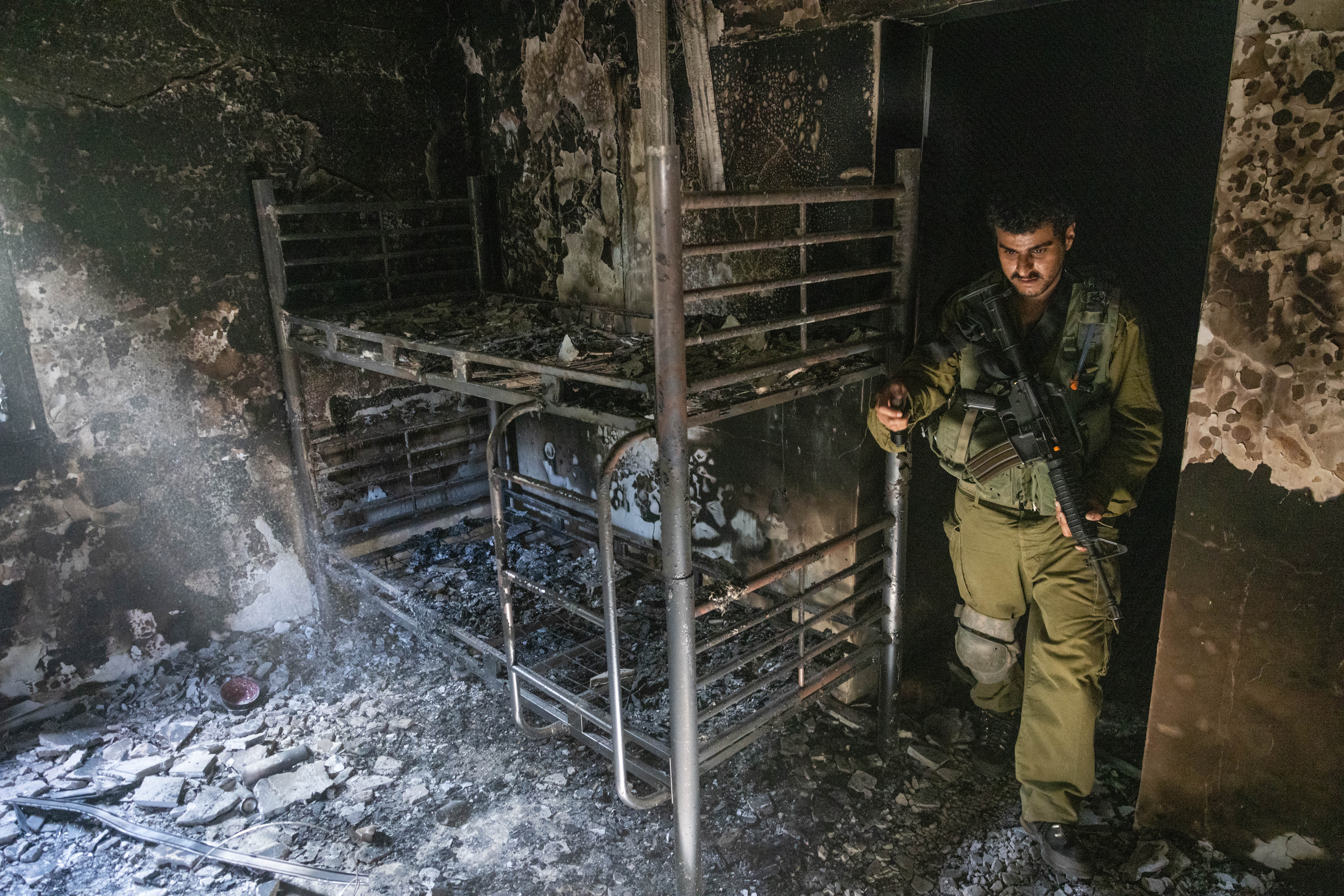
Residents complained about a lack of answers from the government about their future and the trauma that has prevented many from even considering a return to the kibbutz.
By Pesach Benson, TPS
State Comptroller Matanyahu Engelman met with residents of Kibbutz Nir Oz, who are now living temporarily in Karmei Gat, pledging that the State Audit will closely monitor the government’s rehabilitation efforts for communities devastated on October 7.
During the meeting, residents shared painful testimonies about the aftermath of the Hamas attack, in which a quarter of Nir Oz’s residents were either murdered or kidnapped and most of the kibbutz homes were destroyed.
The state comptroller, also known as the State Ombudsman, periodically releases reports auditing Israeli preparedness and the effectiveness of government policies.
At the start of the conversation, the kibbutz members demanded the return of the 14 hostages still held from Nir Oz, and of all 59 Israeli hostages still in captivity.
“The terrorists wiped out the kibbutz. Kibbutz Nir Oz is the state’s test of whether it will be restored or not. Its restoration is the victory,” residents said. “If the kibbutz is not restored and there is no community there. Hamas has won the battle.”
Margalit Mozes, who was kidnapped on October 7 and later released from Hamas captivity after 49 days, described a painful lack of follow-up from the government.
“Apart from the fact that we were happy to see an Israeli soldier transferring us to Israel, no Israeli official has been in contact with me. No one, to this day, from any ministry,” Mozes said.
“Those who returned should have been gathered. To say something, some kind of word. There wasn’t even a welcome, except from the IDF soldiers who received us.”
Mozes added that while a National Insurance Institute official has been helping her, no other government representative reached out even during her hospitalization.
Residents complained about a lack of answers from the government about their future and the trauma that has prevented many from even considering a return to the kibbutz.
“It is very important to create certainty among all the residents of the kibbutz regarding the answers they need,” one member said.
Hadas Calderon — whose husband Ofer and two teenage daughters were abducted and subsequently freed — voiced her frustration over the lack of centralized government support.
“There is no manager who sees the big picture. We find ourselves managing this thing and pulling all the strings,” she said.
“There needs to be someone to manage it. In addition, we must take into account that there will be people from the community who will be afraid to return to the kibbutz again. It’s not that they don’t want to, but they are afraid because of what we experienced. Where is the attention given to them? What about them? People find themselves not young, homeless, with no promise for the future.”
Englman said his office would continue to monitor the rehabilitation process.
“The most significant gap is the issue of those who, for whatever reason, want to go and live somewhere else. This is an issue that is before my eyes and there is a very large gap in it today,” Engelman said.
“The government has an obligation to build a rehabilitation path for the residents of the surrounding area who were affected on October 7, wherever they choose to live.”
He added, “This is a national obligation. As well as the understanding that a community whose members are kidnapped requires government treatment tailored to its needs.”
At least 1,180 people were killed, and 252 Israelis and foreigners were taken hostage in Hamas’s attacks on Israeli communities near the Gaza border on October 7. Of the 59 remaining hostages, 36 are believed to be dead.
The post Freed hostages and Nir Oz survivors tell comptroller of government failures appeared first on World Israel News.
